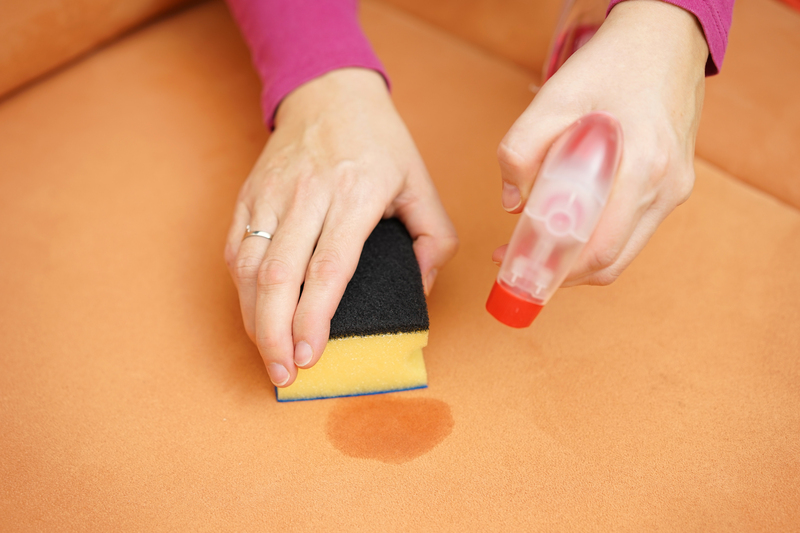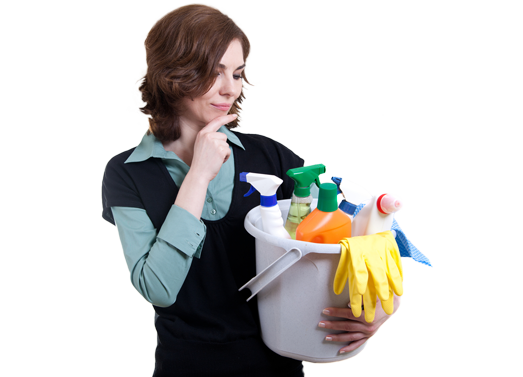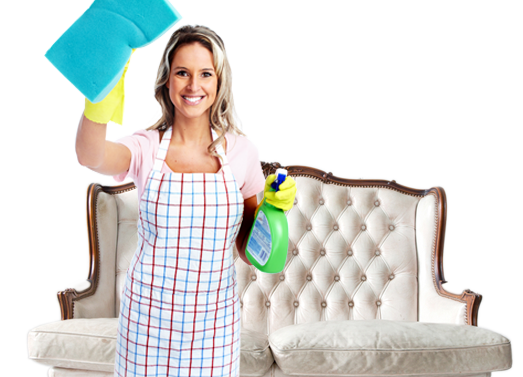Say Goodbye to Stubborn Pet Odors
Posted on 19/09/2025
Say Goodbye to Stubborn Pet Odors: The Ultimate Guide
Whether you're a new pet parent or a seasoned animal lover, one challenge you're likely familiar with is pet odor removal. Unpleasant smells from dogs, cats, or small animals can linger on carpets, furniture, and fabrics, making your home less inviting. If you're tired of fighting a losing battle against stubborn pet odors, this comprehensive guide is here to help. Discover proven methods, expert advice, and top products all designed to help you permanently banish pet smells from your living space.

What Causes Persistent Pet Odors?
Before you can eliminate pet smells for good, it's important to understand their source. Pet odors typically occur due to:
- Urine and Feces: Accidents happen. Even the most well-trained pets occasionally have mishaps.
- Body Oils: Dogs and cats naturally release oils from their skin and fur. These can build up on soft furnishings, bedding, and even walls.
- Saliva and Dander: Pets groom themselves and spread saliva, which, combined with dander, can leave a persistent smell and even trigger allergies.
- Bacteria Growth: Odor-causing bacteria thrive in warm, damp places--think of carpets, pet beds, and corners where pets like to nestle.
Addressing the root causes is crucial for successful pet odor elimination in your home.
How to Remove Stubborn Pet Odors from Your Home
Tackle Pet Accidents Immediately
The most important rule: always act fast! The longer urine or feces sit, the more difficult they are to remove. Here's what to do:
- Blot up liquids with paper towels as soon as possible.
- Rinse the area with cold water--never use hot, as it can set the stain and odor.
- Apply a pet odor neutralizer designed to break down enzymes in urine and feces.
- Allow the area to air dry, then vacuum or clean as needed.
Deep Clean Carpets and Upholstery
Soft surfaces trap smells. To get rid of stubborn pet odors in fabric:
- Use a wet vacuum or carpet cleaner with an enzymatic cleaning solution.
- Sprinkle baking soda on carpets and fabric sofas overnight--it absorbs and neutralizes odors. Vacuum thoroughly the next day.
- Invest in upholstery cleaners specifically formulated for homes with pets.
Wash Pet Bedding and Toys Regularly
Your pet's belongings are major odor culprits. Washing beds, blankets, and toys once a week in hot water (with a little baking soda or white vinegar) helps control smells. If possible, choose machine-washable bedding and rotate through replacements routinely.
Ventilate and Freshen the Air
- Open windows for at least 10 minutes daily to exchange stale air.
- Use air purifiers with HEPA and activated charcoal filters to trap allergens and odors.
- Try natural odor absorbers like bamboo charcoal bags or bowls of baking soda placed strategically around your home.
Choosing the Right Products for Pet Odor Neutralization
Enzyme Cleaners: The Gold Standard
Enzyme-based cleaning solutions are the most effective weapons against stubborn pet odors. Why?
- They break down organic matter (urine, feces, vomit) at a molecular level, eliminating the source of the odor.
- Work on both stains and smells--many regular cleaners only mask odors temporarily.
Look for brands with high customer ratings and check labels for "pet safe" and non-toxic credentials.
Baking Soda: The Old-School Remedy
Baking soda is a time-tested, safe household ingredient. Sprinkle it anywhere that needs deodorizing, especially in litter boxes, pet beds, and trash cans. Leave it overnight and vacuum thoroughly.
Vinegar: Natural and Versatile
Mix equal parts white vinegar and water to make an all-purpose spray. It neutralizes odors, lifts stains, and is safe for most surfaces. However, avoid using vinegar on natural stone like granite or marble to prevent damage.
Activated Charcoal and Air Purifiers
Placing bags of activated charcoal or using an air purifier with a carbon filter can significantly improve air quality and eliminate lingering pet smells in larger or odor-prone rooms.
Dealing with Specific Pet Odor Issues
Dog Odor Removal
- Bath your dog regularly with pet-safe shampoo, especially if they love rolling outdoors.
- Brush fur often to remove dander and loose hair.
- Wash collars and harnesses--they can absorb much more smell than you realize!
Cat Odor Elimination
- Scoop litter boxes daily and wash them weekly with mild soap and water (avoid harsh fragrances that may deter your cat).
- Replace cat litter frequently, and experiment with brands designed to eliminate feline odors.
- Accidents outside the box? Use enzymatic cleaners and address any medical or behavioral issues with your vet.
Deodorizing Small Animal Cages
- Change bedding for rabbits, guinea pigs, and hamsters at least twice a week.
- Disinfect enclosures regularly.
- Use odor-absorbing liners or hay to keep cages fresh longer.
Dealing with Pet Marking and Territory Scents
Pets often mark their turf, creating recurring scent issues. Deep cleaning does the trick, but for extreme cases consider professional cleaning services or pet behavioral training.
Prevention: Stopping Odors Before They Start
- Groom pets regularly.
- Train diligently--address marking and accidents early.
- Maintain a cleaning schedule for pet areas and commonly used rooms.
- Use washable protective covers on sofas and beds.
- Invest in high-quality food--poor diet can lead to stronger body odor and waste.
Bonus Tips to Keep Your Home Smelling Fresh:
- Spray a light mist of fabric refresher in rooms pets frequent.
- Keep houseplants--some, like peace lilies and boston ferns, naturally purify indoor air (check toxicity for pets first).
- Try a DIY simmer pot with cinnamon sticks, citrus, and cloves to add a pleasant aroma naturally without masking odors artificially.
When to Call in the Pros
If odors persist despite your best efforts, professional cleaning may be necessary. Pet odor removal specialists have tools and products to treat deep-set odors in carpets, upholstery, subfloors, and HVAC systems that aren't accessible for regular cleaning.
In some cases, leftover pet smells may be a sign of hidden damage (like pet urine in carpet padding or floorboards). If you're renting or selling a home--or simply can't eliminate the smell after all your cleaning--investing in expert help is often worth it.

Frequently Asked Questions
- Can I use regular cleaning products on pet odors?
Most standard cleaners only mask odors. For best results, use pet-specific enzymatic cleaners that neutralize and break down the source of the smell. - Is it safe to use baking soda around pets?
Yes, baking soda is generally safe; ensure pets do not ingest large quantities. Vacuum up any residue thoroughly. - How often should I clean my pet's bedding?
Ideally, at least once a week. For pets with health issues or allergies, more frequent washes may be needed. - What if my pet keeps marking the same spot?
After deep cleaning, try deterrent sprays, cover the area temporarily, and address possible stress or medical causes with your veterinarian.
Conclusion: Enjoy a Fresh, Odor-Free Home!
Saying goodbye to stubborn pet odors is possible when you combine prompt action, the right products, regular cleaning, and smart prevention. Whether it's dealing with a one-off accident or keeping your household welcoming all year round, the strategies above will help you reclaim your space--so you can focus on enjoying your beloved pet instead of fighting unpleasant smells. Start today with these practical steps and breathe easy in a home that smells as fresh as it feels!
Looking for more advice on how to remove pet odors or keep your home clean? Explore our other guides for pet-friendly cleaning, stain removal, and household tips!




